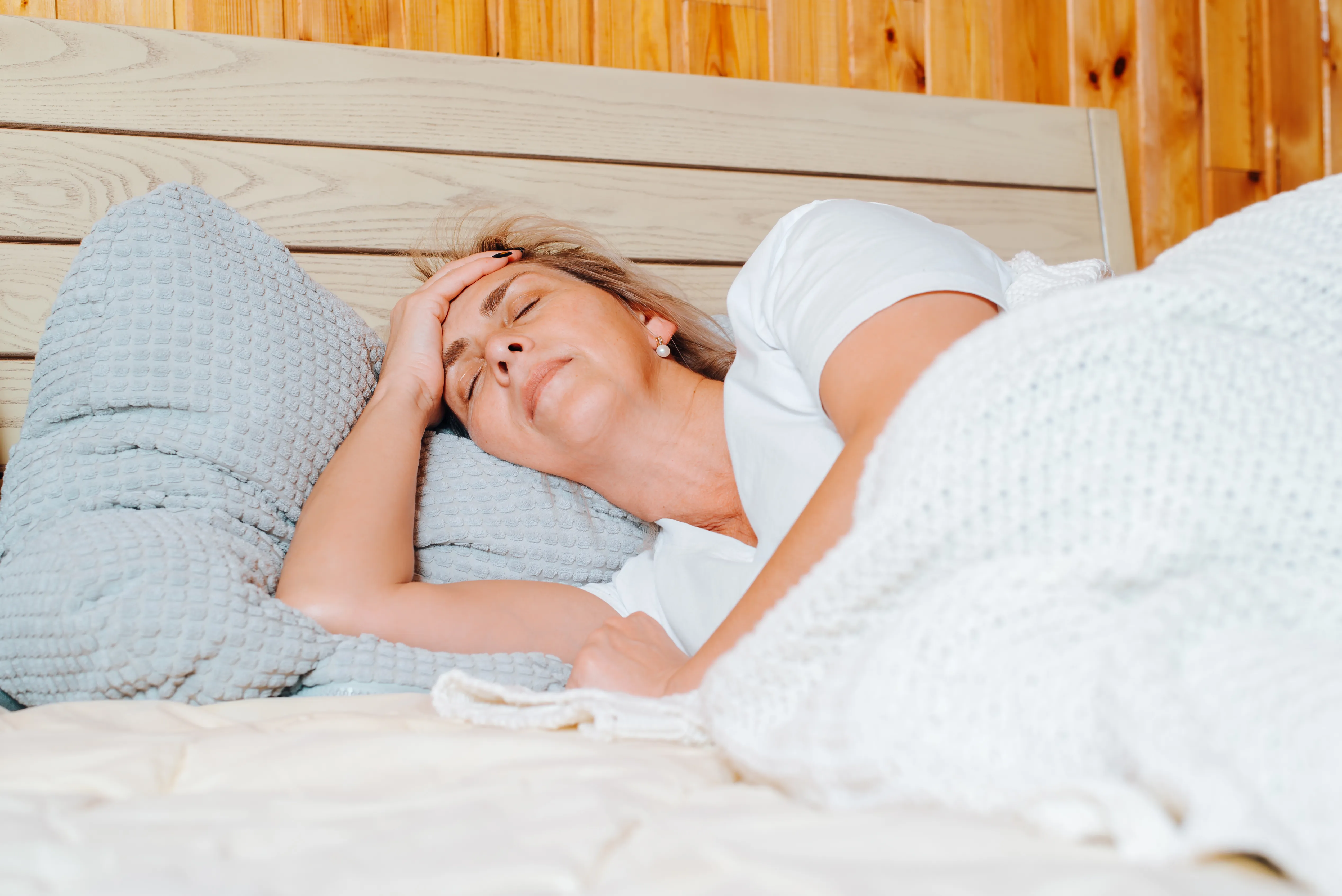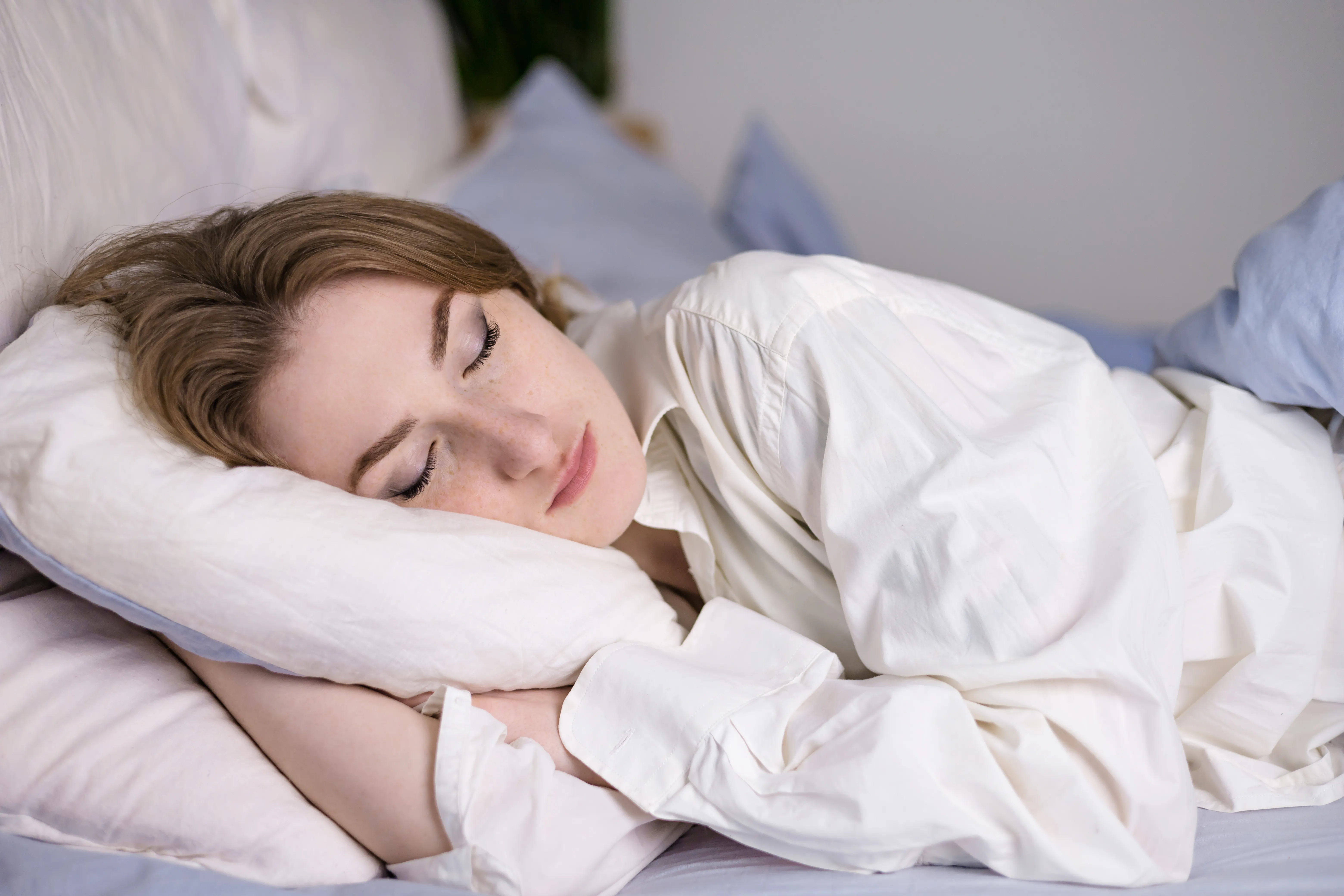While deep sleep often gets attention for its physical restoration, REM (Rapid Eye Movement) sleep is equally vital for your cognitive and emotional well-being.
Due to modern lifestyle habits, many people aren’t getting enough REM sleep, often without realizing it. It's the sleep stage where most dreaming occurs, memories are consolidated, and mood-regulating processes take place.
This article explores what REM sleep is, how much you need, signs of deficiency, common disruptors, and practical ways to improve its quality and duration.
Understanding REM Sleep

REM (Rapid Eye Movement) sleep is a crucial phase in the sleep cycle that supports memory, learning, and emotional processing.
Understanding Sleep Stages
Sleep is made up of four main stages: three non-REM stages and one REM stage. These stages cycle approximately every 90 minutes throughout the night, with each stage playing a distinct role in physical and mental restoration.
REM sleep, which is associated with dreaming and cognitive processing, becomes more dominant in the second half of the night. This means getting a full night's sleep is essential to allow sufficient REM cycles to occur.
How Much REM Sleep Do You Need?
REM sleep should make up about 20–25% of your total sleep time. For most adults, this translates to around 90 to 120 minutes of REM sleep per night, depending on the total amount of sleep achieved.
Falling short on total sleep reduces your REM duration, which can negatively impact memory, emotional regulation, and concentration. Prioritizing full, uninterrupted sleep supports better overall brain function and resilience.
Signs You’re Not Getting Enough REM Sleep
Lack of REM sleep can subtly affect your mental and emotional health. Here are some common signs that may indicate you’re not getting enough REM sleep:
Memory Problems
Without enough REM sleep, your brain struggles to process and store new information, leading to short-term memory lapses and difficulty retaining what you’ve learned.
Emotional Instability
REM sleep is essential for emotional regulation. A lack of it can make you more reactive, anxious, or irritable, even in response to minor stressors.
Difficulty Concentrating
Inadequate REM sleep can impair your ability to focus, stay organized, and think clearly, affecting productivity and decision-making.
Fatigue Despite Adequate Sleep Hours
You may sleep for a full 7–9 hours, but without enough REM sleep, you wake up feeling exhausted, mentally drained, or sluggish throughout the day.
Common Factors That Affect REM Sleep Quality

Several lifestyle, environmental, and health factors can reduce the quality or duration of REM sleep.
Lifestyle Choices
- Caffeine and alcohol: Both substances alter your natural sleep architecture. Caffeine delays the onset of REM, while alcohol may suppress it early in the night and fragment it later on.
- Smoking: Nicotine is a stimulant that raises heart rate and alertness, making it harder to fall asleep and stay in REM. It can also lead to more awakenings throughout the night.
- Irregular schedules: Going to bed and waking up at inconsistent times disrupts your circadian rhythm. This limits the body's ability to enter and maintain REM sleep at the right stages.
- Solution: To support healthy REM sleep, avoid caffeine and alcohol in the evening, limit nicotine use, and maintain a consistent sleep-wake routine—even on weekends.
Environmental Conditions
- Noise: Environmental noise, such as traffic or indoor disturbances, can interrupt your sleep cycles and prevent smooth transitions into REM sleep. Even low-level sounds can cause micro-awakenings that you might not remember.
- Light: Exposure to artificial light—especially blue light from screens—suppresses melatonin production. This delays the onset of REM sleep and reduces its overall duration.
- Temperature: A room that’s too hot or too cold can cause physical discomfort, interrupting your body’s natural thermoregulation needed for deep and REM sleep.
- Solution: Keep your bedroom cool, dark, and quiet. Use blackout curtains, eliminate screen use before bed, and consider earplugs or white noise machines to block out disruptive sounds.
Health Issues
- Sleep apnea: Sleep Apnea is a condition where breathing repeatedly stops and starts during sleep. These interruptions prevent the brain from entering and maintaining REM sleep, leading to fatigue and memory issues.
- Insomnia: Trouble falling asleep or frequent waking shortens total sleep time. As a result, REM cycles may be delayed, shortened, or missed entirely.
- Depression and anxiety: Depression and anxiety are linked to disrupted sleep cycles and abnormal REM patterns. They can lead to either too much or too little REM, both of which affect sleep quality.
- Solution: Address underlying health issues with appropriate treatment. This may include cognitive behavioral therapy, CPAP machines for apnea, or medication and stress management techniques tailored to your needs.
Tips to Increase REM Sleep

To improve your REM sleep, consider implementing the following practical tips and techniques:
Get Enough Total Sleep
REM sleep occurs in cycles and increases in duration as the night progresses. If you’re not getting at least 7–9 hours of sleep, your body may not reach or sustain the longer REM periods needed for optimal brain function.
Maintain a Consistent Sleep Schedule
Going to bed and waking up at the same time every day helps regulate your circadian rhythm. A consistent schedule ensures your body knows when to enter deep and REM sleep stages, enhancing sleep quality overall.
Reduce Alcohol and Sedative Use
While alcohol and sedatives may help you fall asleep faster, they suppress REM sleep and lead to fragmented sleep cycles. Reducing or eliminating these substances allows for longer and more restorative REM periods.
Manage Stress and Anxiety
High levels of stress and anxiety activate your nervous system, making it harder to reach REM sleep. Implementing calming routines or stress-reduction techniques before bed can help quiet the mind and improve your sleep depth.
Avoid Stimulants in the Evening
Caffeine, nicotine, and other stimulants can delay sleep onset and reduce time spent in REM. Avoid these substances in the late afternoon and evening to protect the natural progression of your sleep stages.
Improve Sleep Hygiene
Good sleep hygiene involves creating bedtime habits that signal to your body it’s time to rest. This includes dimming the lights, limiting screen time, avoiding late meals, and keeping a regular wind-down routine each night.
Exercise Regularly
Engaging in regular physical activity can help you fall asleep faster and improve the overall quality of your sleep, including REM stages. However, intense exercise too close to bedtime may be too stimulating, so aim to work out earlier in the day.
Eat a REM-Supportive Diet
What you eat can influence sleep hormones and neurotransmitters. A diet rich in tryptophan, magnesium, and complex carbs can support melatonin production and promote better REM sleep throughout the night.
Optimize Your Bedroom
To create an ideal sleep environment, keep the room as dark as possible by using blackout curtains, which support melatonin production. Maintain a cool temperature—around 65°F (18°C)—to promote deeper, more restful sleep. Reducing noise with earplugs or a white noise machine can prevent micro-awakenings and help you stay in REM sleep longer.
Invest in Quality Bedding
A supportive mattress and pillows are essential for minimizing physical discomfort and preventing unnecessary awakenings during the night. Opt for breathable, moisture-wicking materials like cotton or bamboo to regulate body temperature and enhance overall sleep comfort.
Foods to Include in Your Diet
Eating foods rich in tryptophan—such as turkey, eggs, dairy, and seeds—can promote the production of serotonin and melatonin, both vital for sleep regulation. Magnesium-rich foods like leafy greens, nuts, and whole grains help relax muscles and calm the nervous system. Complex carbohydrates, including whole grains and legumes, can also assist in delivering tryptophan to the brain more effectively.
Foods to Avoid
Avoid consuming caffeine and sugary snacks in the evening, as they can delay sleep onset and reduce REM sleep quality. Heavy or spicy meals close to bedtime may cause indigestion or discomfort, disrupting your ability to fall into and maintain restful sleep.
Techniques to Manage Stress
Practicing mindfulness, yoga, or meditation daily can significantly reduce pre-sleep anxiety and support a calm mental state. Incorporating relaxation techniques like breathing exercises, light yoga, or quiet reading into your evening routine helps ease the transition to sleep. For ongoing stress or anxiety, seeking support from a therapist or counselor can improve both mental health and sleep quality.
FAQs
What is the ideal amount of REM sleep?
The ideal amount varies, but adults typically spend 20–25% of their total sleep in REM sleep, which is equivalent to around 90 minutes per night.
Can naps affect REM sleep?
Short naps (20-30 minutes) generally do not impact REM sleep, but longer naps might reduce the amount of REM sleep you achieve at night.
How does alcohol consumption affect REM sleep?
Alcohol can disrupt the sleep cycle, reducing the amount of REM sleep and compromising sleep quality.
Do sleep disorders influence REM sleep?
Conditions like sleep apnea and insomnia can significantly impair REM sleep, leading to fragmented and less restorative sleep.
Can medications affect REM sleep?
Certain medications, such as antidepressants and stimulants, can influence REM sleep patterns, either reducing or altering them.
Does age impact REM sleep?
As you age, the proportion of REM sleep tends to decrease, but maintaining healthy sleep habits can help preserve REM sleep quality.
Are there natural supplements to improve REM sleep?
Supplements like melatonin and valerian root may support better sleep, but it's essential to consult a healthcare provider before use.
Conclusion
REM sleep plays a key role in keeping your mind sharp, your emotions balanced, and your memory intact. By understanding what supports and disrupts this essential stage of sleep, you can make small, meaningful changes that lead to better rest and better days.
Jessica H.
Jessica is a reviewer, writer, and sleep enthusiast at Sleepiverse. Jessica graduated with her master's degree in Nursing research and education. She is a registered nurse and currently works in the Intensive Care Unit. Since becoming a nurse, Jessica has worked the night shift, which means a disrupted sleep schedule. Knowing she needed to function at her best while caring for patients at night, she spent a lot of time researching how to sleep well with a difficult schedule.


